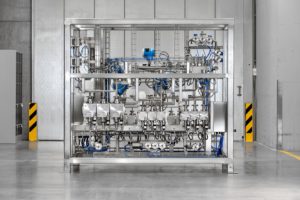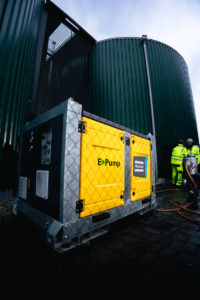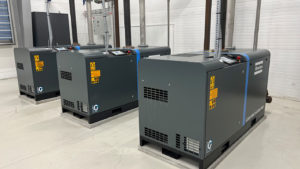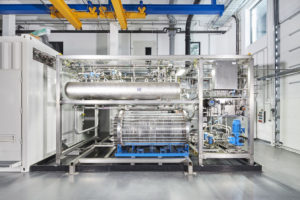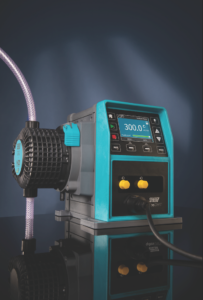Wilo’s Double-headed Pumps Target Newcastle Police
The success of the Market Street project clearly hinges on the Wilo-TOP-ED twin-headed pump's ability to fully utilise its variable speed range of 850rpm to 2,850rpm. However, Wilo's versatile pump also offers full motor protection with trip relay, fault light and twin check flap contained within a cast iron pump body.
Wilo Salmson's energy-saving, Wilo-TOP-ED pumps have been installed as part of a strategic maintenance programme at Market Street police station in Newcastle. The inverter-driven pumps will ensure that the station's refurbished heating system will be fuel efficient and able to adapt to future changes in demand.
Designed by Gateshead Council's Design Services on behalf of the Northumbria Police Authority and programmed for completion before the winter onslaught, the maintenance programme was instigated to address the station's failing cast-iron sectional boilers, which were "leaking badly". The system, which was described as merely "limping
along", required a complete upgrade, including the installation of four new condensing boilers and the substitution of the existing 20-year-old, fixed speed pumps with inverter-driven equivalents.
The £80,000, seven-week programme specified five twin-headed, glandless pumps from Wilo Salmson - Europe's leading manufacturer of pumps and pumping systems. Incorporating IP43-protected motors and stainless steel shafts, the Wilo-TOP-ED pumps are controlled by inverters that adjust the pumps' output to meet changes in demand.
This is especially pertinent as the flanged-ended pumps will need to compensate for pressure changes instigated by thermostatic radiator valves (TRVs) which are fitted to the heating circuits. The TRVs shut down automatically, so the pump needs to adapt to these changes by maintaining the same pressure and reducing the flow rates. Because Wilo's pumps are inverter controlled, they are more than capable of adapting to these changes without having to design in a pressure
activated bypass.
More importantly, to make the station's three heating circuits, reliable and energy efficient, the inverters will match the pumps' performance to the prevailing conditions, thereby reducing excessive energy consumption and associated running costs.
Adaptability is, however, crucial. The old system was unable to adapt changes that occurred over the previous 20 years without expensive alterations. The new system must therefore be flexible enough to be able to adapt to alterations following its installation simply by adjusting the pump settings.
Source: WILO SE


